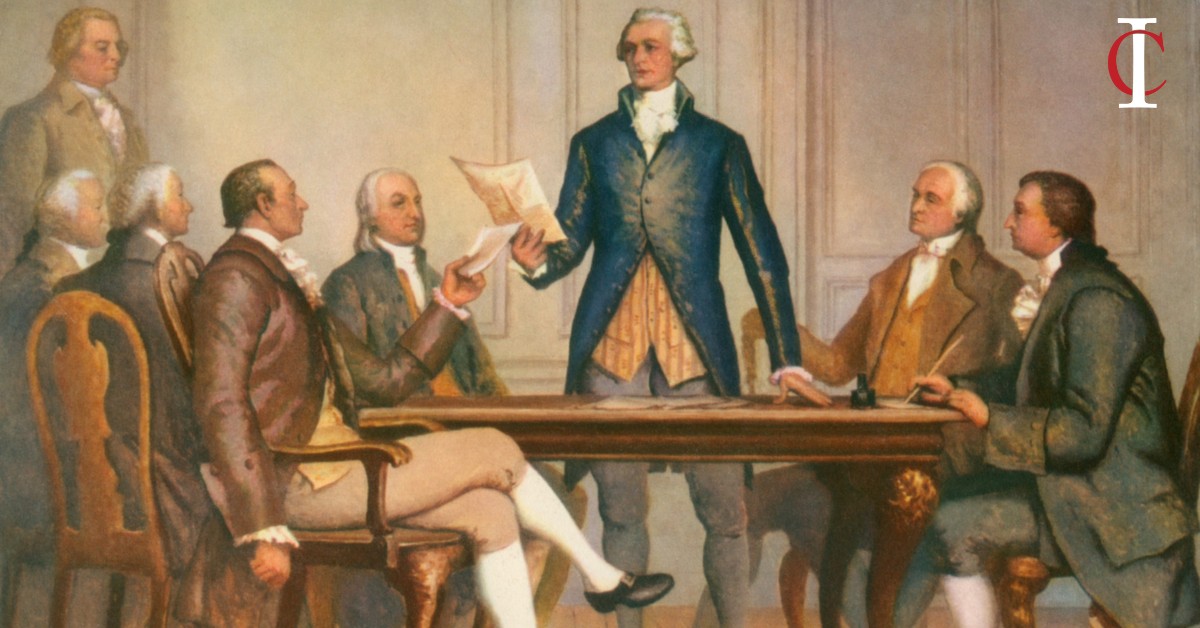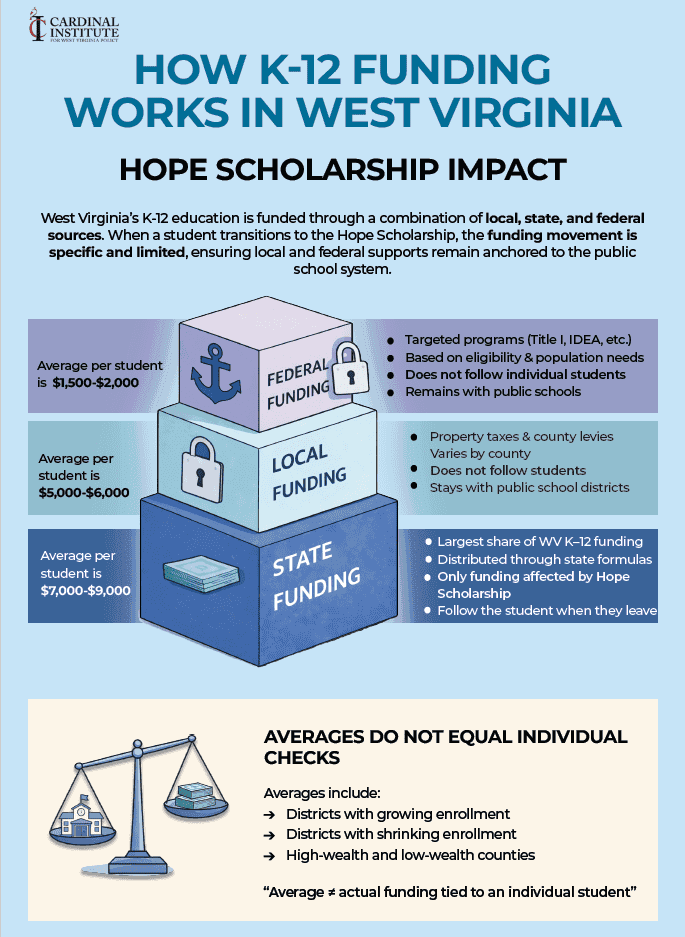
OP-ED: School Choice is the Way Forward for WV
School Choice is the Way Forward for WV
The following op-ed was originally published in the Charleston Gazette-Mail on December 27, 2024.
As a teacher, I learned that believing in my students meant setting high standards and holding firm. I did this because I believed that every student who came through my classroom was fully capable of meeting the standards I set. Lowering expectations would have signaled a different message: I didn’t believe in them. It would have crushed their willingness to try, even when things were difficult.
This same principle resonates far beyond the classroom, applying to education systems at large. The debate around consolidation in West Virginia is not about funding levels or school choice programs. It’s about something more fundamental: whether we, as a society, believe in the ability of individuals and communities to rise to the occasion and take responsibility for shaping education.
Public school consolidation is happening across West Virginia. This year alone, 26 schools will close. Critics are blaming school choice programs like the Hope Scholarship (West Virginia’s Education Savings Account). But consolidation isn’t the result of school choice. It’s the product of deeper, long-term issues.
West Virginia’s public school enrollment has been in decline for years, long before school choice was even conceived of in the state. Over the last 10 years, West Virginia’s public schools have seen a 14% drop – that’s nearly 40,000 fewer students. This mirrors a national trend that reflects not just demographic shifts but growing dissatisfaction with the traditional system.
Fewer families means fewer students, leading to empty seats in classrooms and underutilized school buildings. School consolidation is a natural response like that in any other market. When demand changes, organizations are forced to adjust or risk collapse. Just as the pandemic shifted the corporate world towards hybrid and remote work, public schools must adjust to changing needs. Instead of blaming school choice, we should ask whether the current system can evolve to meet the needs of today’s students and communities.
The real challenge is accountability. Public schools are taxpayer-funded institutions, but they are often insulated from the realities of their circumstances. Instead of addressing these problems, defenders of the status quo resist change and demand ever-increasing funding – pouring more tax money into a system that fewer families are choosing.
Consolidation is painful, but ignoring the problem is worse. It is necessary for the longterm fiscal health of West Virginia to either acknowledge this reality and make a thoughtful plan now, or to continue ignoring the problem by putting more and more tax dollars into the system.
Instead of seeing consolidation as an end, we should see it as an opportunity for communities to take charge of their own education systems. School choice can empower families and communities to create schools that reflect their unique needs and traditions, turning what feels like a loss into a chance for reinvention.
School choice is not the cause of consolidation – it’s a lifeline for families and communities to navigate change. Rather than leaving families stranded without options, school choice empowers them to seek or create educational opportunities that directly serve their children’s needs.
With school choice, rural communities can build something new – a local school designed and operated by families and trusted members of the community. These schools could focus on unique local needs and opportunities like vocational training, and teachers have an opportunity in this uncharted territory. As communities seek solutions to consolidation, educators should take a leading role in shaping new, locally driven alternatives.
All families in West Virginia now have access to the Hope Scholarship, allowing them to “vote with their feet” by directing their education dollars to the schools or programs that best meet their children’s needs. This funding empowers families to fill the void left by consolidation with innovative, community-driven solutions. Imagine a rural school designed and operated by families and local leaders, focused on specific needs. For rural families, who often feel forgotten, the Hope Scholarship is creating a pathway to education solutions.
This is not just a West Virginia issue – it’s part of a national reckoning. Fewer families are choosing public schools, and the system cannot sustain itself on inertia. Blaming school choice programs for consolidation is avoiding the hard truth: The traditional public school system is failing by its own standards, and the empty seats aren’t going to be filled back up anytime soon.
By empowering families to choose schools or programs that align with their goals and values, we foster an environment where providers are incentivized to maintain high standards. Competition drives innovation, pushing providers to innovate and excel to attract and retain students.
Moreover, when families actively select their child’s educational setting, they often become more engaged and invested in the process, instilling a greater ownership of their learning and purpose.
In West Virginia, embracing school choice will create a culture of excellence – where students, educators, and institutions are encouraged to strive for the highest possible standards.








